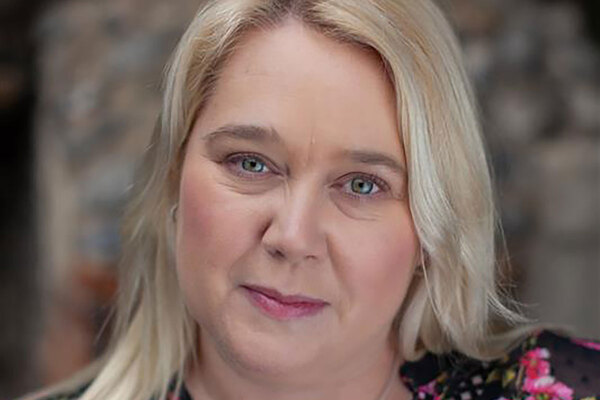
Peter Hubbard is managing partner and a social housing sector specialist at Anthony Collins
The new climate of accountability is a resourcing challenge that housing associations must get right
Housing associations must look beyond the April deadline into the medium term for how to stay up to speed on the new regulatory landscape, writes Peter Hubbard
More than six months after the Social Housing (Regulation) Act 2023 received royal assent, housing associations are now able to see the new regulatory framework taking shape and consider the practical and cultural changes they need to make. Many providers are concerned that a lack of resources could leave them at risk of regulatory downgrades and further undermine their operating margins.
Based on the act’s framework, some key regulatory changes are due to be introduced on 1 April 2024.
First, the Regulator of Social Housing (RSH) will undertake proactive consumer regulation and gain new enforcement powers to take action if registered providers don’t come up to scratch. Performance will probably be assessed based on a new consumer standards rating backed up by a more intensive inspection regime.
While housing associations already undergo in-depth assessments, the new approaches will require them to demonstrate greater accountability and that they have the right culture in place to genuinely encourage customer feedback and scrutiny. They will also have to demonstrate that they are prepared to adapt their services accordingly.
Second, the Housing Ombudsman is introducing a new statutory code to ensure that tenants’ complaints are dealt with in a more consistent manner, and have greater board-member ownership.
With these key shifts towards greater accountability and stronger regulation, it is becoming more important than ever that housing associations focus on delivering high-quality, culturally aligned services when responding to tenant demands.
While greater regulation has been expected for some time, the timing of these changes could pose a major problem for housing associations. Operating margins have been squeezed by rising labour and materials costs, combined with rent decreases in four out of the past 10 years. Last year’s 7% cap on annual rent increases, as housing associations experience cost inflation of between 12% and 16%, is making matters worse.
Finding sufficient cash to complete development programmes while increasing investment is a major challenge, with some housing associations scaling back such programmes and rethinking their operational footprints.
“The new approaches will require housing associations to demonstrate greater accountability and that they have the right culture in place to genuinely encourage customer feedback and scrutiny”
To stay one step ahead of these higher standards and demonstrate accountability, housing associations must take a proactive and robust approach to tenant engagement. They need to demonstrate a closer understanding of individual customers’ needs and a commitment to securing both high-quality feedback and proper customer scrutiny of their services.
Engaging a sufficient number of customers to provide feedback about different aspects of their service offering, such as voids standards and how to prioritise repairs based on different needs criteria, will take time and require investment. Many providers are already planning how they will review services in the future.
For example, adopting digital-first approaches for repairs reporting could marginalise some tenants who are unable to access online portals. Others may have disabilities, and their feedback may be especially important for providers to understand how changes to services may affect them detrimentally.
Housing associations will need to evidence, to their boards and potentially the RSH, changes made in response to feedback, to demonstrate that customers have meaningful influence.
Of the new standards soon to be introduced, the safety and quality standard could have the greatest short-term impact. To comply, providers will need to maintain detailed records of the condition of their housing stock at an individual property level, based on physical assessments, potentially at least every five years.
However, research published last October by the RSH shows that 40% of large private registered providers have completed assessments in the past five years on less than 60% of their stock, so there is a significant amount of catching-up to do for some.
If housing associations do fall short, the repercussions for them and other social housing providers can be severe. New RSH regulatory powers include the adoption of performance improvement plans right through to the imposition of unlimited financial penalties, and/or the mandatory transfer of services to a new corporate manager, such as a property management company or another registered provider.
“To stay one step ahead of higher standards and demonstrate accountability, housing associations must take a proactive and robust approach to tenant engagement”
As the new regulatory landscape for 2024 continues to emerge, there could be further resourcing issues for housing associations.
The government consultation paper published on 9 January relating to Awaab’s Law requires landlords to take action to eliminate specific “hazards” that might be present in their homes, such as black mould. The hazards covered are defined to include those that are likely to negatively affect the health and safety of the resident, and not just a category-one hazard under the Housing Health and Safety Rating System.
It will therefore not be enough to know the identity of your customers; housing associations must take proactive responsibility for understanding any relevant health conditions or characteristics and keep their records up to date.
In due course, it is likely that providers will need to demonstrate how they are acting on this information, for example by eliminating hazards more quickly where tenants’ health conditions could be adversely affected.
With so many changes to make and so little time, housing associations need to look beyond the regulatory deadline of 1 April 2024 and put plans in place for the medium term.
Resources may be in short supply, but staying up to speed on the new regulatory landscape and demonstrating a willingness to adapt both culturally and practically are actions they must get right.
Peter Hubbard, managing partner, Anthony Collins











